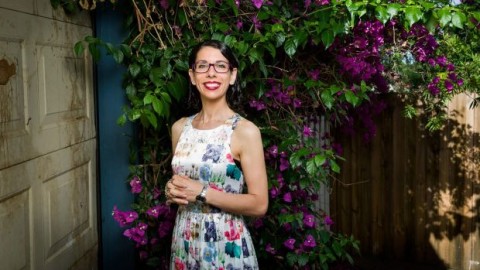
Peter Barrett
Any mother of a pre-school age child knows that life can be intense. There's the bathing, feeding, toiletting, playing, comforting, trips to emergency, more comforting – not to mention the constant funk of niggling sleep deprivation. In most families, though, this phase of life eventually passes.
But for mothers who care for children with a disability, the job is unrelenting. In Australia, one in 12 children have a disability and in 95 per cent of cases, the mother is the primary carer.
Natalie Elder's daughter Ariella was born with a rare genetic disorder called Cri du chat syndrome. The chromosome deficiency means Ariella has no speech, limited mobility and requires round-the-clock assistance with eating, going to the toilet and most other facets of life.
"Other mothers have a light at the end of the tunnel," says Natalie, 45, who lives in Kilsyth with her husband Michael, 52, Ariella, 13, and Kayla, 6, not born with a disability. "They have a time in their mind where they know that things are going to change. […] But there's no end of the tunnel for me. None. My daughter will always be this way."
The accumulated stress for mothers like Natalie can, in fact, be life threatening. A 2014 Western Australian study of mothers caring for children with intellectual disabilities or autism spectrum disorders found they were at more than twice the risk of death than other mothers. It also found they "were 40 per cent more likely to die of cancer; 150 per cent more likely to die of cardiovascular disease and nearly 200 per cent more likely to die from misadventure [homicide, suicide or accident] than other mothers."
But it doesn't have to be that way. Natalie is one of about 400 mothers who attended a one-day workshop designed to help refocus on personal health and wellbeing. GP Fiona Jane and Monash University occupational therapist Associate Professor Helen Bourke-Taylor created the program in 2012, bringing it to Melbourne, Sydney, Geelong, Albury and Chicago, USA.
"We had one woman who came to our program who had a child with autism," recalls Bourke-Taylor. "She hadn't been to a dentist in seven years. Yet, she'd taken her child every six months."
Although the program is still accessible online at healthymothers-healthyfamilies.com, face-to-face sessions ran out of philanthropic funding in July last year and Bourke-Taylor is uncertain about its future. "I'd like to see better understanding of family needs within a disability system that's becoming increasingly individualised and focused on the person who is the recipient of services," she says. "Because they don't live and exist on their own, they live within a family unit and disability affects the whole family."
Encouraged by the workshop, Natalie has started doing Pilates. "My back, arms and shoulders were so painful from assisting Ariella on and off the toilet, in and out of the car, in and out of chairs, that I didn't realise how much damage I was doing to my back," she says.
Natalie hopes that someone will fund the workshops soon so others can understand and better tackle the health ramifications they are facing.
"Every mother with a child with a disability needs to go and sit down and spend a day with Helen and Fiona to work out how to prioritise their lives; to reduce the amount of stress and to be able to just get up and get out of the house. Because it can be so overwhelming," she says.